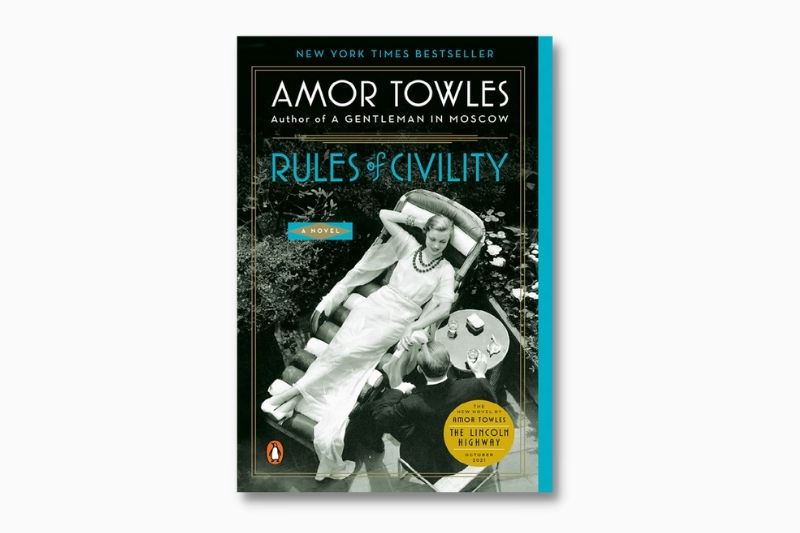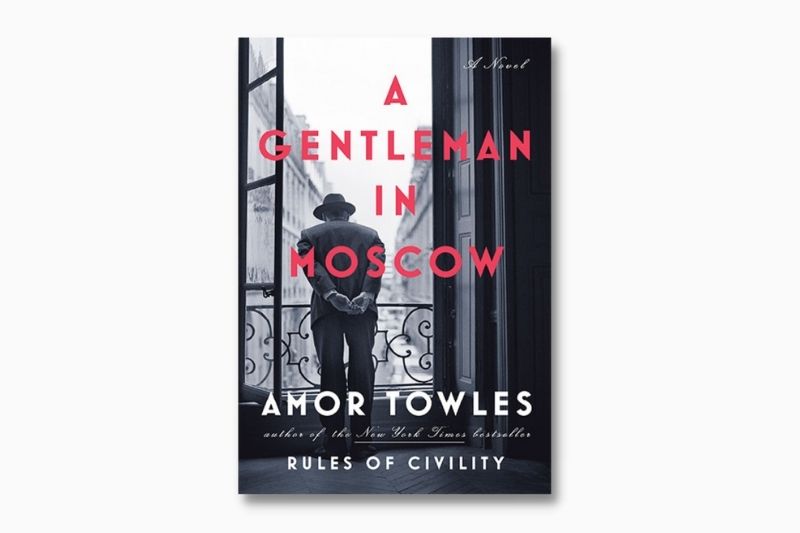
Towles’ skill is in creating lead characters readers can connect to (Photo: Amor Towles)
My daughter often asks me who my favourite author is, and the answer is always the same: I can never choose one because there are different writers to love for different genres. Whenever I pine for a spot of travel, it is Pico Iyer for the way he writes about culture through the lens of a foreigner. When it is whimsy and humour I crave, anything by Sir Terry Pratchett is perfect. My desire for murder mysteries is assuaged by either Agatha Christie, Anthony Horowitz or Shamini Flint, and local author Brian Gomez’s Devil’s Place always makes me laugh.
The pandemic has left me with more time to read and there have been a number of new books I managed to pore over, but I have noticed that stress often drives me to the comfort of the familiar rather than the excitement of anything new. Every time the daily new Covid-19 cases jumped, or I heard of particularly bad pandemic-related news, one author has emerged as my constant — Amor Towles.
Born and raised in Boston, Towles worked as an investment professional for over 20 years before turning to writing full-time, which he now does from his base in Manhattan, where he lives with his wife and two children. His first book, Rules of Civility, traces exactly one year in the life of 25-year-old Katey Kontent as she navigates life in late-1930s New York armed with bracing wit and her own brand of cool nerve. His next book, A Gentleman in Moscow, is set in 1922 as unrepentant aristocrat Count Alexander Rostov is sentenced to house arrest at the Metropol, and there he must stay even as Russia’s history unfolds outside the hotel’s doors.
rules_of_civility.jpg

I have read both books multiple times since acquiring them, evinced by their well-worn covers and slightly collapsing spines. I was initially wracked with guilt for not using the downtime to expand my oeuvre, but as it turns out, rereading books you love isn’t an unsurprising reaction to the pandemic. There is much solace to be found in tomes of which you know the ending — familiar plots and known emotional registers help stressed-out readers (present company included) avoid suspense and surprises.
Clearly, Towles has a type (as do I) as both his books are set in a defined period of the past — Katey in Depression-era New York, the Count in the suffocating years after the Bolshevik Revolution in Moscow. For anyone who loves history, especially when it is told through the lens of literature, Towles’ brand of storytelling is particularly compelling. Fiction and reality seamlessly dive into one another in both books, challenging the reader’s understanding (and recollection) of history. Plus, the man really writes quite beautifully.
Towles’ skill is also in creating lead characters readers can connect to. For example, Katey very quickly becomes someone I would have liked to be friends with, right from her fierce independence, dry wit and love of books. Told from the vantage point of an older woman, looking back to the year when everything went wrong — and sort of right — in her life, Katey finds love, watches it slip away and somehow gets hold of part of her future in a fascinating 12-month period. You can’t help but root for her as the book progresses, even though there is no doubting that she will find all she seeks, as she is too smart and tough not to.
Borrowing from Breakfast at Tiffany’s and a little of The Great Gatsby, the charm of Towles’ debut novel is not its originality, but the romance of jazz bands at 3am, gin martinis in fancy apartments and the slick glamour of 1930s New York. This is a flesh-and-blood story you can buy into completely, decked to the rafters with fabulous details of the period it is set in. It is a fun, glamorous, semi-literary tale worthy to be lost in, and I did — many times over.
a_gentleman_in_moscow.jpg

If Katey was someone I wanted to forever be friends with, the Count is the handsome, fascinating gentleman that crashes my dinner table whose company I thoroughly enjoy, but at the same time, who I am also relieved to escape from at the end of the meal. Since Russia’s new Soviet masters have sentenced him to house arrest, the Count passes the decades making a whole world out of a hotel and the people in it — a precocious nine-year-old, a moody chef, the French maître d’ and so on.
In both books, the geographical setting is secondary to the story at hand. Katey would be just as likeable in London and the Count could have just as easily been locked up in a hotel in Paris. A Gentleman in Moscow is especially insular, since the protagonist is under house arrest, and one of the most heart-warming references to the outside world is the way he, the chef and the maitre d’ manage to find the ingredients for a bouillabaisse in war-ravaged Moscow — a process that takes three years. “With the very first spoonful, one finds oneself transported to the port of Marseille — where the streets teem with sailors, thieves and madonnas, with sunlight and summer, with languages and life,” Towles writes.
His writing style is elegant and urbane, blending simple turns of phrases with delightfully evocative prose. I am immediately transported to the time and place he describes, a part of the pictures he paints so evocatively of a young girl in New York and a banished Count in Moscow. Is a temporary escape from reality not the objective of a good book, a sign that the author has reached through another person’s existence, grasped her imagination and let her dreams soar, even momentarily?
This article first appeared on Aug 2, 2021 in The Edge Malaysia.


